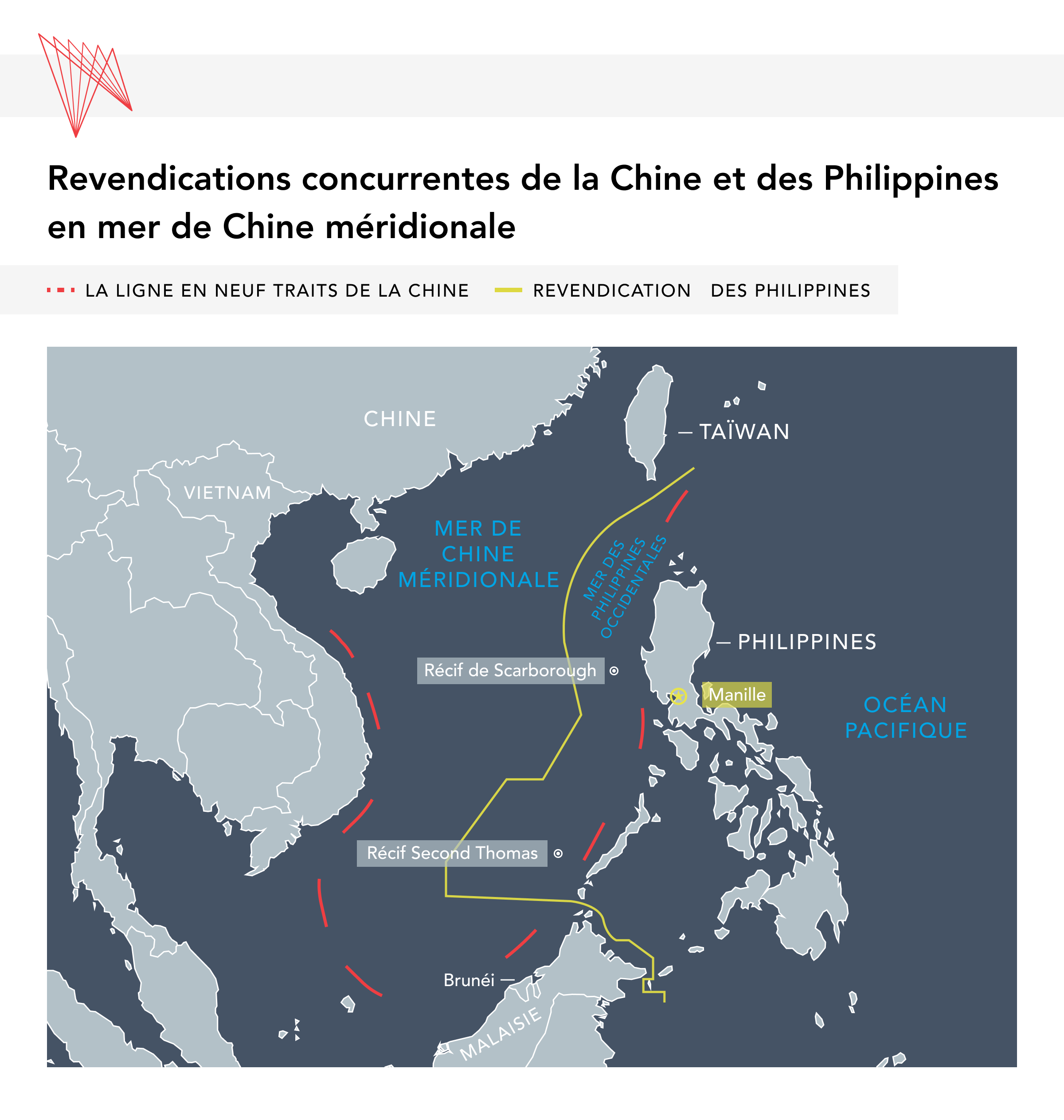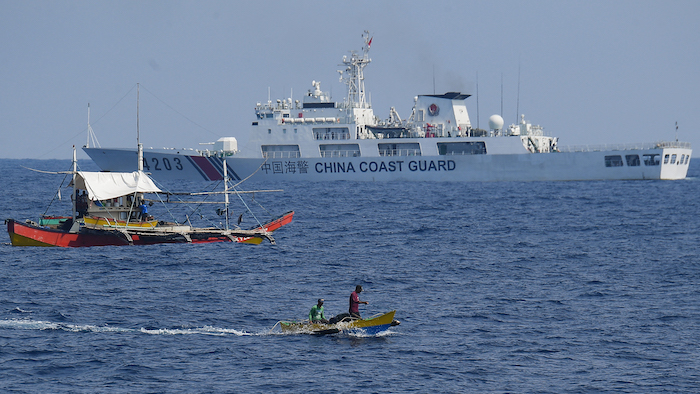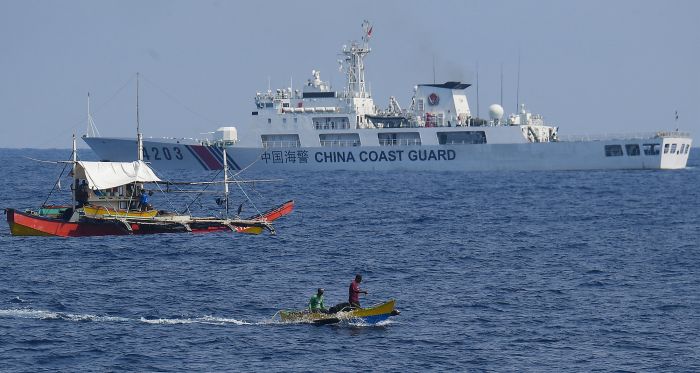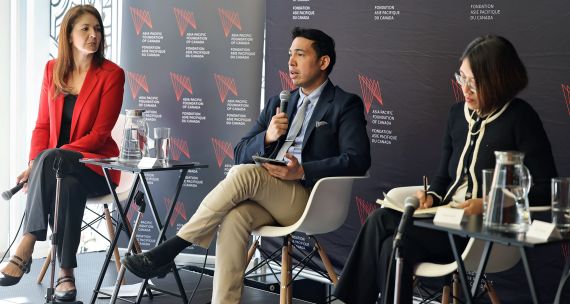À retenir
La Chine a introduit une nouvelle réglementation en matière de patrouille maritime, également connue sous le nom de décret no 3 de la Garde côtière chinoise, afin d’autoriser ses garde-côtes à détenir des navires et des individus étrangers pendant une période pouvant aller jusqu’à 60 jours s’ils les soupçonnent d’entrer illégalement dans ce que la Chine considère comme ses eaux territoriales.
Certains craignent que la réglementation, entrée en vigueur le 15 juin, ne déclenche un conflit avec les Philippines en mer de Chine méridionale, où les tensions liées aux revendications territoriales rivales sont vives.
En bref
- Selon le décret no 3, la Chine peut détenir tout navire étranger ou individu soupçonné d’avoir enfreint la loi chinoise dans les eaux relevant de « l’autorité chinoise » pendant une durée maximale de 60 jours sans procès. Ce nouveau décret est une mise à jour de la loi de 2021 sur la Garde côtière chinoise.
- Le décret no 3 ne précise pas les limites du territoire qui relève de « l’autorité chinoise », mais il est censé inclure la zone maritime délimitée par la ligne en neuf traits de la Chine, soit la frontière maritime contestée qui, selon Beijing, confère à la Chine la souveraineté sur une grande partie de la mer de Chine méridionale.
- En 2016, la Cour permanente d’arbitrage de La Haye s’est prononcée à une écrasante majorité en faveur des revendications territoriales de Manille en mer de Chine méridionale. La Chine a rejeté cette décision et continue d’affirmer sa « souveraineté incontestable » sur la région.
- Les confrontations entre des navires chinois et philippins en mer de Chine méridionale n’ont jamais été aussi nombreuses depuis fin 2023. Le point central de ces affrontements est le récif Second Thomas, une destination occasionnelle pour les convois civils philippins revendiquant leurs droits de pêche.
-
Le 17 juin, deux jours après l’entrée en vigueur du décret no 3, un navire de ravitaillement de la marine philippine et un navire chinois sont entrés en collision près du récif Second Thomas, et des renseignements indiquaient que les forces chinoises brandissaient des machettes, des haches et des marteaux, causant des blessures physiques à l’équipage et des dommages au bateau philippin.

La ligne en neuf traits, parfois changée à 10 traits, englobe les zones de la mer de Chine méridionale revendiquées par la Chine. Les demandes de Beijing sont contestées par les Philippines, le Vietnam, l’Indonésie et d’autres pays de la région, et ont été rejetées par la Cour permanente d’arbitrage en 2016. | Conception graphique : Chloe Fenemore
Implications
Manille hausse le ton. Les dirigeants politiques et militaires des Philippines ont réagi sans équivoque à la fois au décret no 3 et au conflit du 17 juin. Le président de la Chambre des représentants Martin Romualdez a qualifié les « actions unilatérales » de la Chine d’« escalade flagrante des tensions »; un porte-parole des garde-côtes philippins a qualifié ces mesures d’outils de coercition « illégaux » pour justifier la « ligne imaginaire en neuf traits » de Beijing; et le général Romero Branwner Jr. des Forces armées des Philippines a imploré les pêcheurs de son pays de ne pas « avoir peur de pêcher dans l’Ouest de la mer des Philippines » où se trouve le récif Second Thomas, en ajoutant qu’il « appartient [aux Philippines] ».
Les partenaires et alliés de Manille sont en alerte. Le 18 juin, un responsable du Département d’État américain a réaffirmé l’engagement de Washington à défendre les Philippines conformément au traité de défense mutuelle de 1951 entre les deux pays. Les experts affirment que d’autres gouvernements seront attentifs à l’ampleur des mesures de dissuasion américaine. Le 18 juin également, le Canada a publié une déclaration condamnant les récentes actions de la Chine à proximité du récif Second Thomas. Bien que la déclaration ne mentionnait pas précisément le décret no 3, elle dénonçait la « déclaration d’autorité unilatérale » de la Chine et la violation du droit international.

Le Japon a également « suivi de près les événements », non seulement en mer de Chine méridionale, mais aussi à proximité des îles Senkaku, contrôlées par le Japon, dans la mer de Chine orientale, îles que la Chine revendique également et qu’elle désigne sous le nom de Diaoyu. Le 1er juillet, le ministère japonais des Affaires étrangères a publié une déclaration faisant référence à la loi de 2021 sur la Garde côtière chinoise et à ses « dispositions problématiques en termes de respect du droit international ». Selon des renseignements japonais, des navires chinois ont été repérés près de ces îles presque tous les jours au cours des derniers mois.
La leader adjointe de la minorité parlementaire des Philippines, France Castro, a appelé les autres membres de l’Association des nations de l’Asie du Sud-Est (ANASE) à lutter contre le « mépris flagrant de la Chine à l’égard de la souveraineté des Philippines », mais jusqu’à présent, les membres de l’ANASE sont restés pour la plupart silencieux.
L’ambiguïté augmente le risque d’erreur de calcul et de malentendu. Le libellé du décret no 3 est très vague. Par exemple, il s’appliquerait dans des circonstances telles qu’une « suspicion d’entrée, de sortie ou de séjour illégaux dans [les frontières définies par la Chine] » ou une « atteinte à la sécurité nationale et à l’ordre public [chinois] », mais ne précise pas ce que ces termes signifient concrètement. De même, il ne définit pas les « mesures coercitives ou autres mesures d’application de la loi nécessaires » que la Chine pourrait prendre pour faire appliquer la loi. Certains analystes suggèrent que cette ambiguïté est intentionnelle, probablement pour donner à Beijing une certaine marge de manœuvre dans la manière dont elle applique cette nouvelle réglementation. En outre, comme le note un observateur, le décret no 3 « ne fait pas de distinction entre les navires d’État et les navires commerciaux », ce qui signifie que « des garde-côtes ou des navires de guerre étrangers » pourraient être détenus.
Prochaines étapes
1. Entretenir l’espoir de désamorçage
Le 2 juillet, des représentants de la Chine et des Philippines se sont rencontrés à Manille pour des « discussions cruciales » visant à apaiser les tensions. Il s’agissait de la neuvième réunion de leur mécanisme de consultation bilatérale sur la mer de Chine méridionale. Beijing n’a pas encore publié de déclaration, mais Manille a indiqué que, bien que des « progrès notables » aient été réalisés dans l’élaboration de mesures visant à gérer les tensions, « des différences importantes persistent ».
2. Du côté du droit international
Les Philippines ont récemment soumis une demande à la Commission des limites du plateau continental des Nations unies afin de consolider leurs revendications territoriales concernant l’extension de leurs fonds marins continentaux dans la région du Palawan occidental. En cas d’approbation, les Philippines obtiendraient le droit exclusif « d’explorer et d’exploiter les ressources naturelles » du fond marin étendu et du sous-sol.
3. La diplomatie entre les Philippines et le Vietnam au sujet de la mer de Chine méridionale
Le 20 juin, le Vietnam, dont les revendications territoriales en mer de Chine méridionale recoupent celles des Philippines, s’est notamment déclaré prêt à discuter avec Manille pour déterminer des mesures qui soient dans l’intérêt des deux pays.
• Rédaction : Erin Williams, gestionnaire principale de programme ; Vina Nadjibulla, vice-président, Recherche et stratégie






